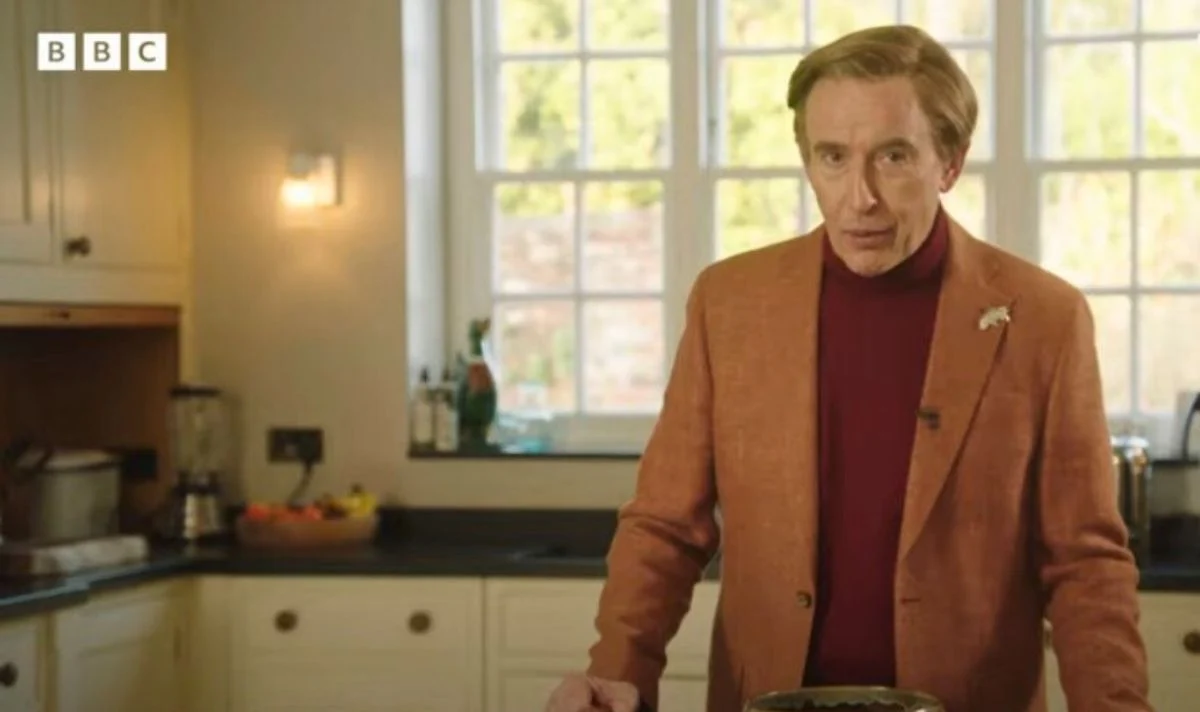
Henry Jaglom, the indie filmmaker who directed films including “Always” (1985), “New Year’s Day” (1989), “Last Summer in the Hamptons” (1995) and “Déjà Vu” (1997), has died, according to the New York Times. He was 87.
Both Jaglom’s personality and his films tended to divide people. In the introduction to H. Alex Rubin and Jeremy Workman’s 1997 documentary on the director, “Who Is Henry Jaglom?,” PBS’ “POV” website declared: “Hailed by some as a cinematic genius, a feminist voice and the only true maverick of American cinema, dismissed by others as a voyeuristic, egomaniacal fraud and the ‘world’s worst director,’ Henry Jaglom (‘Eating,’ ‘Babyfever’) obsessively and hilariously confuses and abuses the line between life and art, challenging the boundaries of filmmaking with his unorthodox style.”
But the deeply personal, cinema verité style he developed in his stream of consciousness pictures certainly had its supporters.
The New York Times’ Stephen Holden began a Jaglom review by saying: “Henry Jaglom’s autobiographical films, with their navel-gazing introspection, require a degree of patience that many moviegoers are loath to extend. But even the most self-indulgent Jaglom films loiter in psychic territory that more mainstream explorations of well-heeled angst often overlook.”
In the “Who Is Henry Jaglom?” documentary, critic Michael Medved declares his opinion that Jaglom’s films are “touching and thought-provoking” while the director Louis Malle says, “He improvises almost completely. But excuse me, it shows” — yet theater director André Gregory makes it clear that that’s the point: “Henry likes to go into the unknown…he enjoys the danger in the process.” Actress Candice Bergen calls Jaglom aggressive, confrontational, but also enormously supportive: “If I had had Henry as a father or as a husband,” she jokes in the documentary, “I could probably have taken Poland.” Dennis Hopper and Ron Silver both laud his innovative methods.
Jaglom came from a very wealthy family — indeed, when he and second wife Victoria Foyt were divorcing, she got their mansion — set on what was said to be the largest compound in Santa Monica — and ultimately sold it for $23 million. The money for purchasing such an estate in the first place certainly was not accrued from the box office revenue of Jaglom’s films.
That he did not have to scrimp in order to make his films fundamentally set him apart from most or all other independent filmmakers, which perhaps contributed a certain undisciplined quality to his work. But that quality was also part of his aesthetic: He often worked without either a script or rehearsals in an impromptu arrangement that, he maintained, allowed him to “shape” and “evoke” performances spontaneously.
He had something to say, and a need to document his own life in his own movies. The best example was 1985’s “Always,” a “cinema à clef,” in the words of People magazine, documenting the painful breakup of the director’s first marriage, with “Jaglom and Townsend, now divorced, as thinly disguised versions of themselves.”
In Jaglom’s 1989 “New Year’s Day,” he played a man in a mid-life crisis who decides to leave Los Angeles and start life anew in New York City, but when he arrives at his apartment, he discovers it’s been sublet to two attractive young women; in the following year’s “Eating,” women gather for the birthday party of a friend and discuss their lives and associations with food. Love story “Venice/Venice” followed the relationship between an American director— Jaglom — and a female journalist.
Roger Ebert described 1994’s “Babyfever” as “another one of his engagingly offhand fictionalized documentaries, in which the characters talk earnestly and all too comprehensively about the problem du jour: In this case, whether or not to have a baby. Like many of his films, it has an appeal almost despite itself. It’s too long, it’s too talky, it indulges itself, and yet because it is sincere and sometimes funny, we are willing to watch.”
The film in which Jaglom stepped outside of himself the most was 1995’s “Last Summer in the Hamptons,” about a gathering of three generations of an accomplished theatrical family. Variety said: “Henry Jaglom takes a big step forward in ‘Last Summer in the Hamptons,’ a mildly amusing comedy of manners that evokes the spirit, if not the accomplishment, of Chekhov, Renoir and, most specifically, Woody Allen.”
Of 1997’s “Deja Vu,” Jaglom’s “fictionalized, wildly romantic retelling of meeting and falling in love with his wife and collaborator, Victoria Foyt,” the New York Times said, “At its insidious best, the film is a seductive advertisement for continuing one’s adolescent search for a romantic soul mate well into middle age and beyond and for scrapping one’s long-standing domestic arrangements if that true love should happen to present itself.”
Whatever place Jaglom held in the national conversation about independent filmmaking peaked in the mid to late 1990s. Later efforts included “Festival in Cannes” (2001), “Going Shopping” (2005), “Hollywood Dreams” (2006), “Irene in Time” (2009), “Queen of the Lot” (2010), 2012’s “Just 45 Minutes From Broadway” (which began as a play), “The M Word” (2014) and “Ovation” (2015).
Jaglom was born to a Jewish family in London. His father, who worked in the import-export business, was from a wealthy family from Russia, and his mother was from Germany. They left for the U.K. because of the Nazis, and the family entered the U.S. in 1939. He picked up his first eight millimeter camera as a boy.
After graduating from the University of Pennsylvania in 1959, Jaglom trained with Lee Strasberg at the Actors Studio, directing the off-Broadway improvisational revue “The Uncommon Denominator,” in which he starred with Karen Black, among others, in 1963.
He also worked in cabaret before moving to Hollywood in 1965. Under contract to Columbia Pictures, Jaglom guested on TV shows including “Gidget” and “The Flying Nun,” and he appeared in films including Richard Rush’s “Psych-Out” (1968), Boris Sagal’s “The Thousand Plane Raid” (1969), the Jack Nicholson-directed “Drive, He Said” (1971), the Dennis Hopper-helmed “The Last Movie” (1971) and Orson Welles’ never-completed “The Other Side of the Wind.”
In 1967, he went to Israel to film a documentary on the Six-Day War; and he had been cultivating friendships with the likes of Jack Nicholson, Warren Beatty, Sally Kellerman, the screenwriter Carol Eastman and producer Bert Schneider of BBS Productions, who viewed his movie and hired him to work with Nicholson on the editing of Hopper’s “Easy Rider” (1969).
The first film Jaglom wrote and directed was 1971’s “A Safe Place,” starring Tuesday Weld, Nicholson and Welles. His next movie, “Tracks” (1977), starred Hopper and was among the earliest films to explore the psychological cost of the Vietnam War. His third film, and first commercial success, was the 1980 comic romp “Sitting Ducks.”
Jaglom penned four plays performed on Los Angeles stages: “The Waiting Room” (1974), “A Safe Place” (2003), “Always — But Not Forever” (2007) and “Just 45 Minutes From Broadway” (2009-10).
Jaglom received a renewed burst of attention with the 2013 publication of Peter Biskind’s “My Lunches With Orson: Conversations Between Henry Jaglom and Orson Welles,” in which Biskind shaped and edited a series of conversations between the two filmmakers that Jaglom had recorded, some say surreptitiously, while Jaglom maintains it was with Welles’ assent. But as NPR pointed out, while Peter Bogdanovich’s reproduced conversations with Welles in the 1992 book “This Is Orson Welles” were of a generally scholarly bent, Jaglom captured Welles in a mood to dish dirt and nasty opinions about fellow celebrities. (“I hate Woody Allen physically. I dislike that kind of man”).
The director won a lifetime achievement award from Method Fest in 1999. Jaglom had relationships with actress Karen Black and singer Andrea Marcovicci.
Jaglom was thrice married. He was married to occasional actress and script supervisor Patrice Townsend from 1979-83 and to writer-actress Victoria Foyt from 1991-2013. Both marriages ended in divorce.
He is survived by third wife Tanna Frederick, whom he married in January 2014, and two children by Foyt, Sabrina Jaglom and Simon Jaglom, both of whom appeared in many of his films since infancy.



